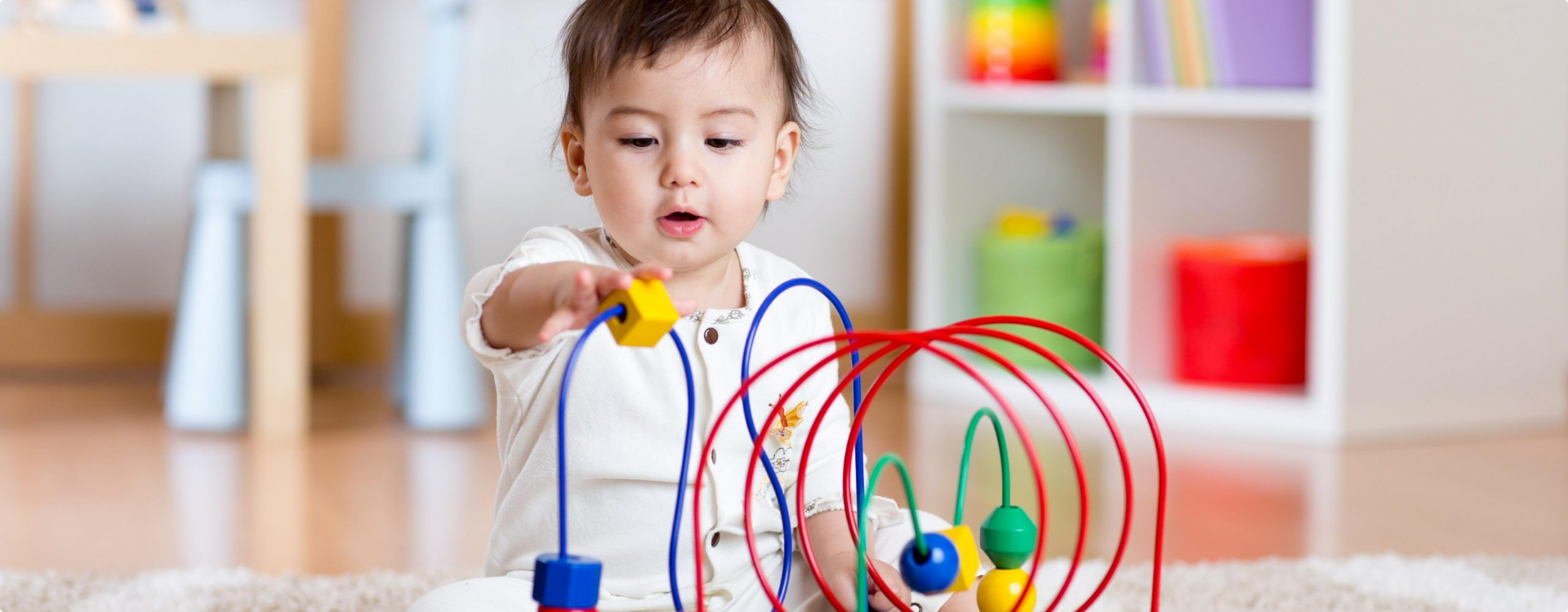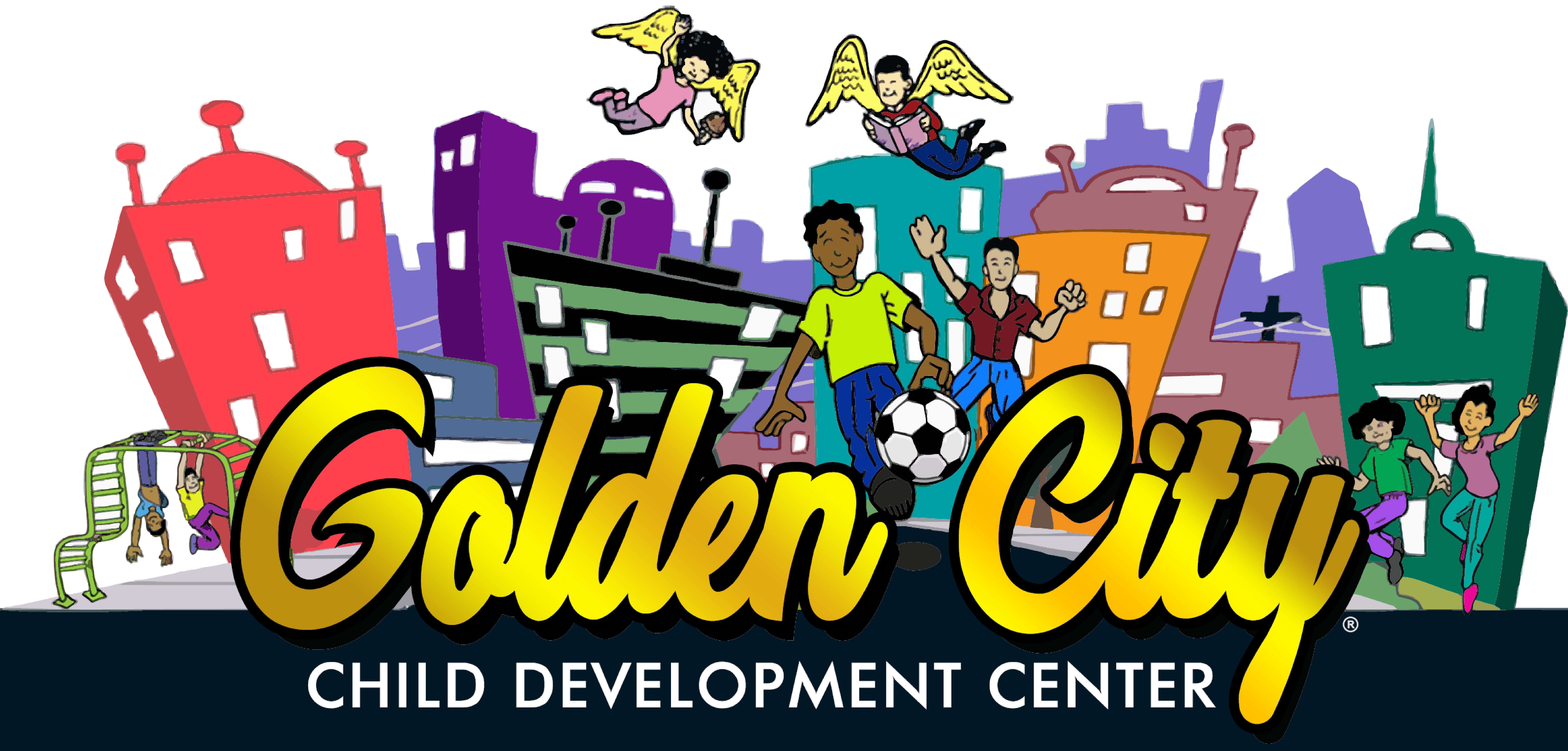
Infant Care Development
Infant: 6 weeks – 24 months
The philosophy of Golden City CDC Infant Program is centered around providing infants with a loving, safe, and stimulating environment for learning. We believe in the importance of fostering physical, emotional, social, and intellectual development at a young age. We strive to create an environment where caregivers are well-prepared and knowledgeable about sound principles of child development and can provide constant attention, praise, and care.
Our unique city-like theme helps children learn about their family, community, and world. Through exploration, manipulation, and a better understanding of the world, infants can progress through the natural learning process. We aim to establish an atmosphere of trust, support, and delight so each individual can experience holistic growth.
Ratio
Our ratio for our infants is 1 teacher to 4 infants.
Age
We accept infants from 6 weeks to 24 months old.
Hours
Our infant room opens from 6:00 a.m. to 6:00 p.m. Monday – Friday.
Potty Training
When our infants show readiness for toileting, we implement a Toileting – Plan with parent participation.
Feeding
We request that parents bring five pre-made bottles daily with the current date and name of the infant. When your infant is ready for the various stages of baby food, the teacher and the parent develop a feeding plan. Parents are notified daily of their child’s daily intake and the time he/she was fed.
Diapers
We request that parents bring daily or leave diapers for their infants. Parents will be given a daily report informing them of all diaper changes and the time of diaper changes.
Program
A warm environment and positive interaction foster an infant’s sense of trust and self-esteem. Daily routines and sensory experiences promote listening and language skills and help infants learn about the world around them. Play activities and interactions focus on developing large muscles for sitting, crawling, standing, and walking and small muscles for grasping, reaching, holding, and picking up objects.
Communication
One of the most important goals of our program is daily communication with parents. At the beginning and end of each day, our parents receive verbal and written highlights of their child’s day. Parents are welcome at any time to observe, have lunch, or just hug their child.
Social-Emotional Development
Includes the child’s experience, expression, and management of emotions and the ability to establish positive and rewarding relationships with others.
0 – 1 Month: cries to express emotions; bonding begins
4 – 10 Weeks: social smiles
2 Months: begins social games.
3 Months: distinguishes familiar faces*, turns head toward the human voice, smiles in response to a smile, kicks, smiles, waves in response, cries when left alone, and recognizes a parent
4 Months: genuine laugh, smiles when spoken to, loves attention
5 Months to 1 year: stranger anxiety*
6 Months: distinguishes between voices, smiles, babbles at strangers, develops attachment, begins to play imitation games, plays peek-a-boo, sensitive to parental moods
8 Months: laughs out loud.
9 Months: screams to get own way, play is an activity only for the present moment, fears unfamiliar: people, places, things*, beginning sense of separate self. *
Language Development
Includes a wide range of specific competencies that preschool children will need support to learn including listening and speaking, reading, writing.
0 – 1 month: turns head in response to voices, cries to express needs
6 – 8 weeks: coos Gestures to communicate, pushes objects away, squirms reach out to people, * pouts, smacks lips, shrieks, points
2 months: voluntary vocal sounds
3 months: babbles
6 – 12 months: imitation sound games, responds to a variety of sounds*, makes vowel sounds, acquires receptive language*, cries to communicate
12 months: first words
Physical-Motor Development
The development includes balance, locomotor skills, manipulative skills, body awareness, spatial awareness, directional awareness, and active participation.
By 1 year: grows 10 to 12 inches, triples birth weight. lengthens by 40%, doubles brain size, grows a full head of hair, bounces in the crib, and uses whole-body motions.
4 months: sees, grasps objects.
5 months: examines fingers, sits when propped.
6 months: rolls over, discovers feet, teething begins.
7 months: crawls
8 months: sits up unaided, pulls to a standing position, pincer grasp established.
9 months: creeps
10 months: feeds self with a spoon
11 months: stands alone, cruises.
12 months: first steps
Late infancy: can move hands in rotation to turn knobs; newborn motor activity is mostly reflexes.
Cognitive Development
Focuses on a child’s ability to process information, conceptual resources, perceptual skill, language learning, and other aspects of brain development.
0-1 month: responds to mother’s voice: senses function, especially pain, touch*
10 weeks: memory is evident*
4 months: smiles of recognition
7-10 months: solves simple problems (knocks over the box to get toy)
8 months: begins to believe in the permanence of objects; follows a simple instruction.
8-12 months: intentionally in acts
11 months: begins trial-error experimentation.
12 months: plays drop/retrieve games, pat-a-cake, explores with hands and fingers, smiles, vocalizes at the image in mirror*
Key cultural awareness of identity characteristics
During the first years of life, babies and young children acquire the skills necessary for healthy growth and development, setting the stage for later success in school and life. These skills are acquired in the context of relationships with family members and other essential caregivers. Children need nurturing, responsive and loving care to inspire their initiative, curiosity, and hunger to learn. They also need help from their parents and well-trained professionals when struggling. Not all children develop at the same rate, and the above guidelines may not apply to your child. Consult with your pediatrician if you have any concerns.


